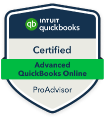
Small business owners have a lot on their plate. They have to wear many hats to ensure their businesses run smoothly, and sometimes, that means delving into areas they may need to become more familiar with, like accounting and bookkeeping.
Corporate tax planning is the strategic structuring of business operations to legally minimize tax liabilities using available tax laws and regulations. A proactive approach involves:
- Understanding current tax regulations.
- Anticipating changes.
- Making informed decisions to benefit from tax incentives and credits.
Here’s a breakdown of six important things to know about Alberta’s corporate tax framework.
Corporate Income Tax Rate
In Alberta, corporations are subject to federal and provincial corporate income taxes. The provincial rate is 8%, while the federal rate is 15%. Consequently, the total tax rate for Alberta corporations is 23%. Businesses may reduce their effective tax rate through various tax credits and deductions.
Capital Gains Tax
Canada offers a favourable tax treatment for capital gains, with only 50% being taxable. The federal rate on this portion is effectively 7.5%, and Alberta’s rate is 6%, making the combined rate 13.5%.
Scientific Research and Experimental Development (SR&ED) Tax Credit
This federal incentive encourages R&D activities by offering tax credits. In Alberta, eligible corporations can receive a refundable tax credit of up to 20% on qualifying SR&ED expenditures, reducing their tax burden.
Investment Tax Credit (ITC)
Alberta offers a 10% non-refundable tax credit on certain capital investments to encourage business growth and innovation. This credit applies to qualifying machinery, equipment, and other specified assets but cannot be refunded if it exceeds the corporation’s tax liability.
Record Keeping
Maintaining accurate and comprehensive records is crucial for tax compliance and optimization. It’s advised to keep detailed records of all financial transactions, capital costs, business-related expenses, and home office expenditures to support tax filings and deductions.
Deadlines
Awareness of filing deadlines is essential to avoid penalties. These include corporate income tax returns due six months after the fiscal year-end, GST/HST filings, payroll deductions, and installment payments at specified intervals. Extensions may be requested but must be done before the due date, and any taxes owed should still be paid on time.
Small Business Accounting Services From Accounting By Sal
Navigating the complexities of corporate tax planning requires staying informed about the current tax landscape and potentially working with a tax professional to ensure compliance and optimize tax savings. When you want to focus on the areas of your business that you’re good at, dedicated and knowledgeable professionals can help take care of your corporate tax planning.
Our experts at Accounting By Sal Corp have years of experience in a range of small business accounting services, from tax preparation to new business setups.
At Accounting By Sal Corp., we provide:
- Done-For-You Accounting & Bookkeeping, where we offer remote bookkeeping tailored to your needs.
- DIY Bookkeeping, where we teach you how to use QuickBooks Online or FreshBooks Online and guide you through how to organize your accounts so you can manage your own books.
- Business Mentorship & Coaching, where Sal helps clients achieve the business of their dreams. As a passionate entrepreneur and business owner herself, Sal has a wealth of knowledge with a ton of experience under her belt.
Tax season can be challenging for small business owners without proper planning and organization. Our small business accounting services are here to ease the stress and take your tax planning off your plate.














